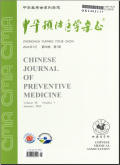儿童复杂脉管畸形的分子诊断和靶向治疗的研究进展
Perspectives on molecular diagnosis and targeted therapy for complex vascular malformations in pediatrics
摘要脉管畸形是由于胚胎时期血管和(或)淋巴管异常发育所致,不伴有内皮细胞增殖。既往因对其致病机制尚未明确,多数以手术和硬化剂注射等对症治疗为主。随着分子生物学进展,脉管畸形的致病机制被认为是生殖细胞种系突变和/或体细胞突变,最终激活PI3K/ATK/mTOR、Ras/Raf/MEK/ERK通路所致,相关研究也促进了靶向抑制剂的应用。本文对目前儿童脉管畸形致病基因和靶向药物进行阐述,旨在为推动此类疾病的精确分子诊断和精准靶向治疗提供参考依据。
更多相关知识
abstractsVascular malformations are due to abnormal development of blood and/or lymphatic vessels during embryonic life without endothelial cell proliferation. Most of the previous treatments were symptomatic methods as surgery and sclerotherapy because the pathogenic mechanism was not clearly understood. With advances in molecular biology, the pathogenesis of vascular malformations is thought to be related to inherited and/or somatic mutations that eventually activate the PI3K/ATK/mTOR, Ras/Raf/MEK/ERK pathways. Also, related studies have promoted the use of targeted inhibitors. This article provides a review of current causative genes and targeted drugs for pediatric vascular malformations, aiming to provide a basis for promoting accurate molecular diagnosis and precision targeted therapy for these diseases.
More相关知识
- 浏览67
- 被引1
- 下载0


相似文献
- 中文期刊
- 外文期刊
- 学位论文
- 会议论文



 换一批
换一批 换一批
换一批



